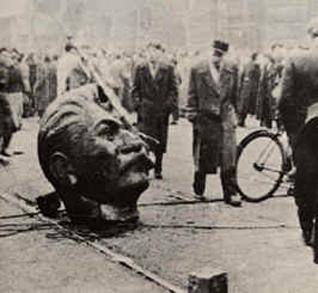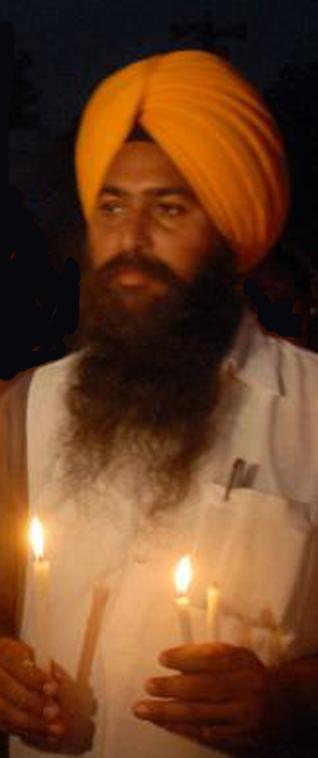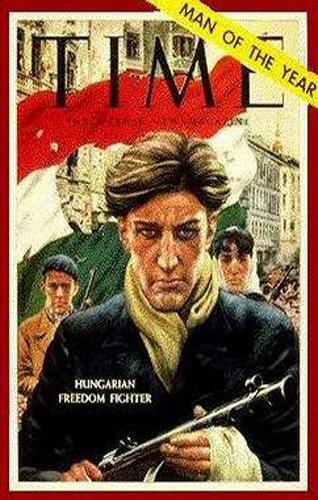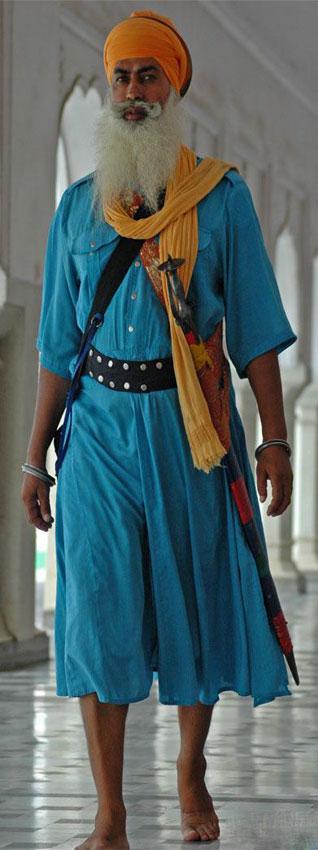1984
A Tale of Two Cities:
1956 & 1984
by SHEILA CSILLA BALI
I was born in Budapest, Hungary and currently reside in the Bay Area in California, U.S.A.
Two years ago, when I was writing a book, I happened to meet a beautiful young Sikh woman. We exchanged a few words over a cup of coffee. Having learnt about the book, she became curious to know about it. I told her that it was based on my experiences during the 1956 Hungarian Revolution.
To my surprise, she also had a story to tell about the 1984 massacre of Sikhs in India. I was unaware and ignorant of the magnitude of her agonizing story, as she of mine.
I was moved by this young woman’s story, now embedded in history. How unfortunate that we gravitate only towards the things that are near and dear to us, and tend to forget about the rest of the world! We keep treasured the things that matter to us, and shrug a cold shoulder to the things that don’t!
I turned seven in 1956, the year of the Hungarian Revolution and my friend turned eight in 1984, the year of the Sikh Holocaust.
As young girls, each one of us lived in very different times, different places and thousands of miles apart.
I recall my father waking me up in the middle of the night. And while we ran in the cobbled streets of Budapest, he tugged my hands to move faster, to catch a train. My father, my mother, my sister and I fled when the Soviet tanks rumbled into the capital city. We fled because my father had become part of something big - bigger than life. He had joined the resistance fighters against the communist Soviets, and was caught, but he managed to escape from execution.
He was targeted as ‘a wanted man’. His crime, like that of so many millions, was that he wanted a better life for his family, and have his country back from the grips of communism.
My book talks about the wishes and dreams of a people who lived 55 years ago. From November the 4th to November the 10th, 2,500 Hungarian people and 700 Soviets troops died in the struggle. In the two months - November and December - 200,000 young people escaped Hungary to begin new lives.
Mine is just one of them. It needed to be told.
In 1984, my Sikh friend witnessed a very different episode from mine. Her father also held her hands, not on a train, or in the streets, but on an ordinary commuter bus, in one of the very quiet and calm cities of India. Just a few moments before the vehicle was to depart from the bus stand, an individual from a Hindu extremist group jumped aboard and singled them out - they were visibly identifiable as Sikhs!
He threatened them with a steel rod, and menaced with fiery eyes. “Let me kill the Sikh! Kill this man, he killed our mother Indira Gandhi!”
The burning words frightened the child. Her father stayed focused and calm, gripping the kirpan he wore on his side. Some passengers shouted to the extremist, “The Sikh is alright, he’s a fine man. Leave him alone. He’s known to us.”
The frightened and traumatized eight-year-old could not understand this shameful and inhuman behavior.
Thousands of Sikhs were persecuted, massacred, and burnt to death, just within a few days after Indira Gandhi's death, for which they had absolutely nothing to do.
Both the events occurred long ago, touched us as children and have stayed with us till now with the same intensity.
Sometimes I relive the big escape of '56, walking the farmlands from Sopron across the border to Vienna in the blackest of nights - the sights, sounds and the peculiar smells of the wet soil and leaves linger in my soul.
In these very same weeks, we commemorate the 1956 Hungarian Revolution and the 1984 Sikh Genocide.
What have we learnt from these events? Did we forget?
Does history need to be told?
Yes, history must be told, and then re-told over and over again, and remembered for ever, otherwise it will repeat itself.
My life’s journey from then to now and from there to here has uprooted me physically and emotionally. In time, I learned to yield and stretch into a living elastic band. I adapted. Orphaned from my birthplace, heritage, relatives and language, I immigrated to Canada with my family. I lived there for most of my life, and then moved to California.
I am not lost, despite the repeated uprootings in my life. I am blessed. I am blessed because along the way, I learned much about people. I learned that one can physically be a citizen of one country but at heart be a citizen of the world. We can learn to see all people alike.
The journey for my Sikh friend came as an emotional uprooting too, a disconnectedness from her home country. She felt betrayed. Betrayed by her own people.
She never cheers, will never cheer, for an Indian team ever again. To my surprise, she did not even celebrate the Festival of Lights that was on the calendar only a few days ago.
”It was an Indian tradition," she said. ”I am not an Indian!”
Later, when my friend and I had talked for hours about our past, we discovered that we shared something special.
Friendship. Our new blossoming friendship.
Time and distance transcends all obstacles. What matters is that people can come closer and celebrate what the world offers. That there can be peace.
Amen ... Waheguru.
November 2, 2011
Conversation about this article
1: Jim Alder (New Jersey, U.S.A.), November 02, 2011, 8:51 AM.
You have moved me to tears with the two simple stories!
2: Onkar Singh (Jaipur, Rajasthan, India), November 02, 2011, 9:07 AM.
Man's inhumanity to man! Over and over and over again. Sometimes I think it is indeed time for the human species to go the way of dinosaurs. Won't be much of a loss to the universe, if you ask me!
3: Harinder (Uttar Pradesh, India), November 02, 2011, 10:06 AM.
Onkar, I don't agree with you. We Sikhs are 'akalis' - the People Beyond Time. Genocides and holocaust, no matter who inflicts them on us or how often, do not take away our lust for Life Beautiful.
4: Jesroshan Singh (Malaysia), November 02, 2011, 11:10 AM.
My college teacher is a Hungarian-Canadian. She was born in Canada after her parents escaped Hungary. She said that her father wanted a better life after WWII. She did not elaborate much. Most probably he fled because of the revolution. It's kinda depressing, first to have to face the Nazis, and then the Soviets only 10 years later, when your country is trying to rebuild itself. Anyways, thanks for the story. It's something new I learnt today.
5: N. Singh (Canada), November 02, 2011, 12:45 PM.
Great article! What this teaches us is the need for us to tell our story and tell it loudly. If this young Sikh woman had never opened up to the author for fear of shame, persecution or anger, this article would never have been written. We must learn to speak up for ourselves and our rights. There is no shame in this. Applying this to a micro-level, one of the greatest lessons I have learned as a woman is that in order for me to look after and nurture others, it is also important for me to look after my own needs. I remember the women of past generations who constantly put first the needs of their husbands, children and in-laws before their own. Did this make them better mothers? No, deep down it led to bitterness and the need to make someone else's life as miserable, typically the new daughter-in-law's.
6: Baldev Singh (Bradford, United Kingdom), November 02, 2011, 12:47 PM.
Conflict created by egomaniacs is nothing new, and fleeing from it is the rational answer defenseless people have. Growing up in Leeds, England, our street was primarily immigrants from every corner of the planet, including Eastern Europe.
7: Julie Royce (Dublin, California, U.S.A.), November 03, 2011, 6:26 PM.
An amazing and inspirational story. I'm glad you are sharing it.






